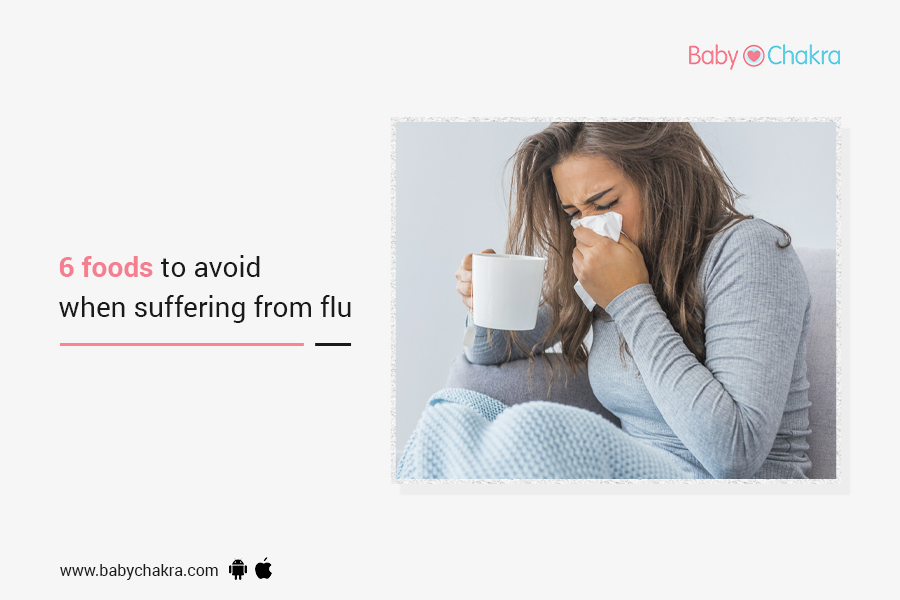
6 Foods To Avoid When Suffering From Flu
2 Apr 2022 | 2 min Read
Neha Suryawanshi
Author | 3 Articles
The last thing you want to do is to worsen your flu infection during this COVID-19 pandemic. We are always told that healthy eating, good hydration, and the right medication help faster recovery from any illness. But what’s forgotten by a lot of us is to tell “what not to eat or do.”
When down with flu, certain foods can worsen the infection or delay your recovery that you need to strictly avoid. These include:
Dairy products
Consuming cold dairy products during flu can lead to thickening of the mucus that will worsen the congestion.
Caffeine
Caffeine/ coffee and other caffeinated drinks can lead to dehydration in the body and also lead to stimulation. Both of these outcomes can slow down your recovery process.
Processed foods
People tend to lose their appetite during the flu. It’s important to consume healthy and nutritive food instead of processed foods that are low in nutrition if the consumption is already low.
Alcohol
Alcohol can lead to dehydration and can also lower the immune response.
Greasy foods
Greasy foods are difficult to break down. Oily and greasy foods that are full of saturated fats also lead to irritation in the throat.
Canned sugary juices
Canned juice contains a lot of hidden sugar and is low in nutritive value. Such hidden sugar can worsen the symptoms of flu and delay recovery.
Advice: Choose healthy eating options to support your immunity for a faster recovery. Consult your doctor/ expert and know what foods can help boost your immunity for a speedy recovery.
If you like the article, do rate us too on the google app store by using this link
A


Related Topics for you
Suggestions offered by doctors on BabyChakra are of advisory nature i.e., for educational and informational purposes only. Content posted on, created for, or compiled by BabyChakra is not intended or designed to replace your doctor's independent judgment about any symptom, condition, or the appropriateness or risks of a procedure or treatment for a given person.
